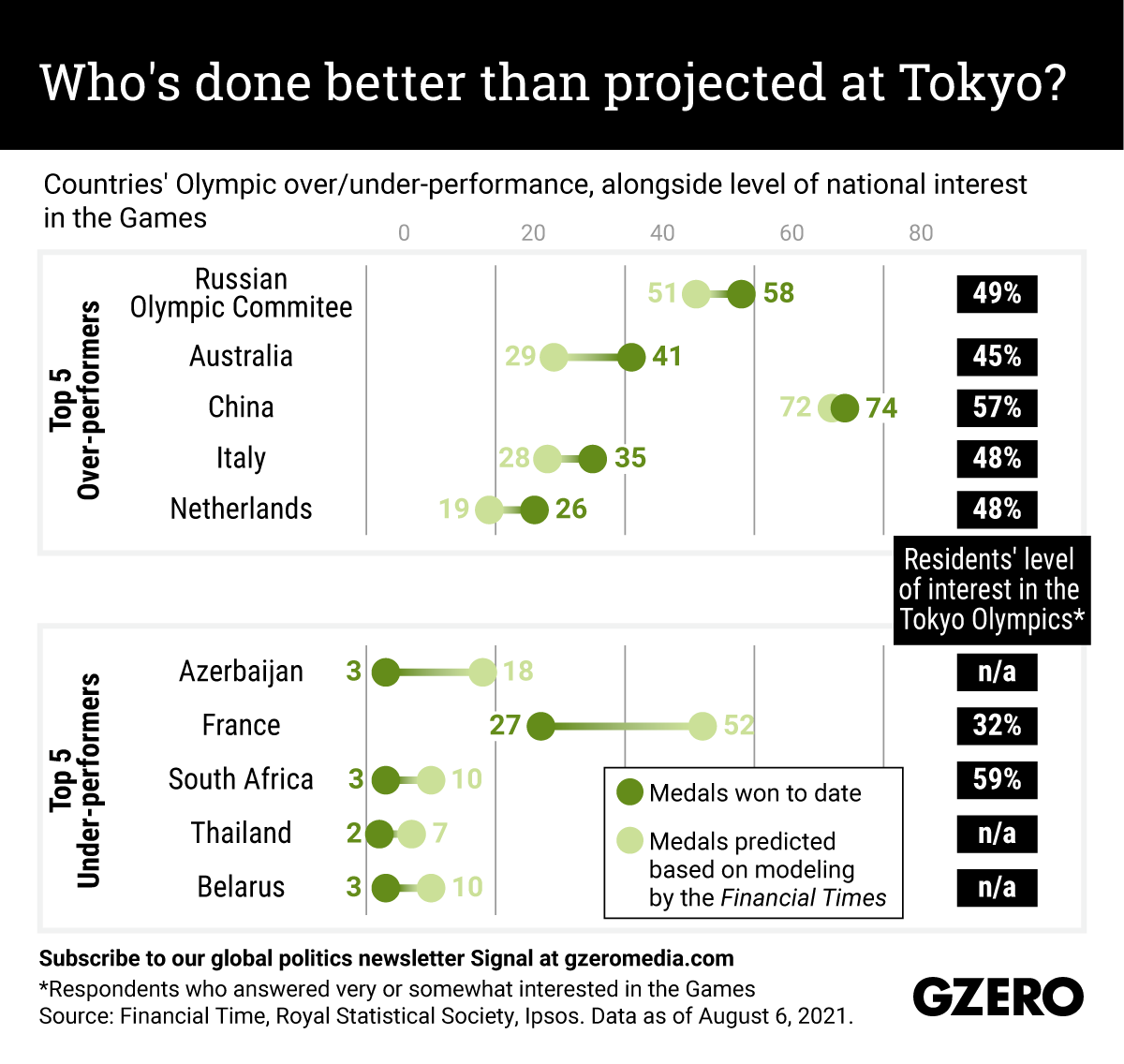The Graphic Truth: Who's done better than projected at Tokyo?
August 05, 2021
We expect the usual suspects — US, China, Russia — to dominate the Olympic medal tally. But how should the performances of large, well-resourced countries really be assessed? Drawing on a model first developed by a team of labor economists, the Financial Times looks at a range of factors — including past medal hauls, population size, and GDP per capita — to determine whether nations have surpassed or failed to meet expectations at the Tokyo Games. We take a look at the biggest under-performers and over-performers per the model, and whether people in these countries really care about the Olympics at all.
